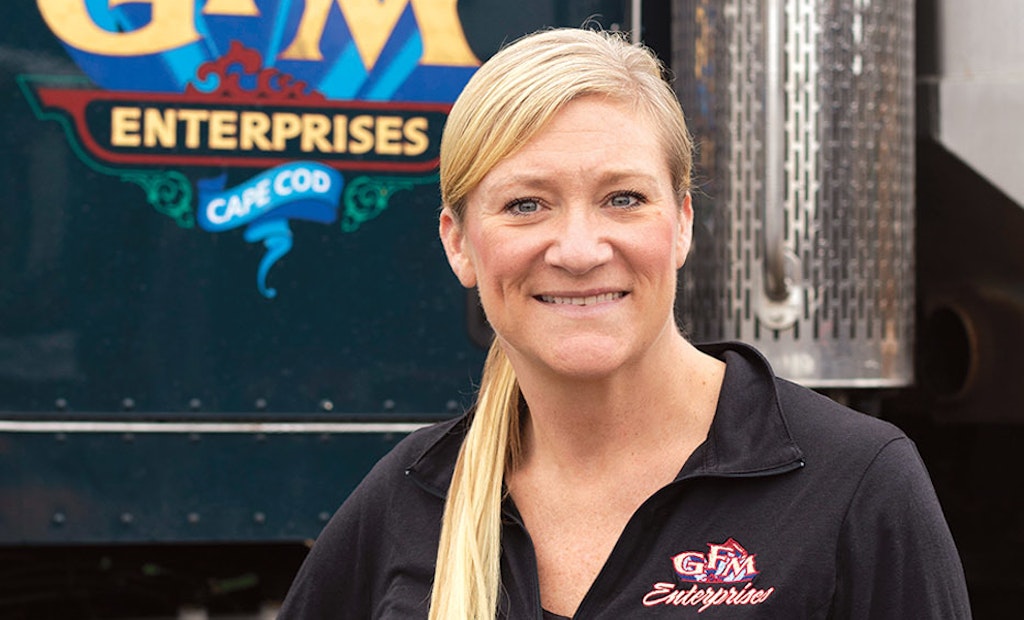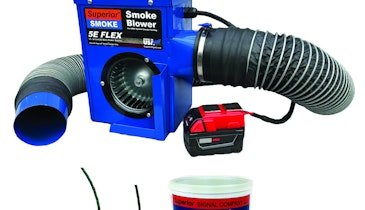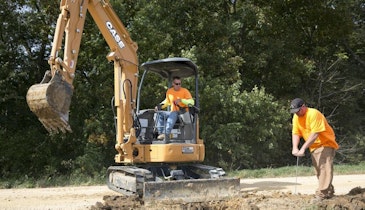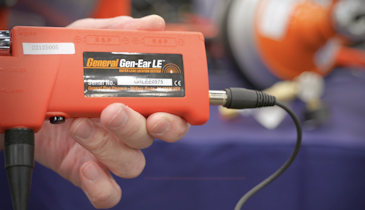Interested in Education/Training?
Get Education/Training articles, news and videos right in your inbox! Sign up now.
Education/Training + Get AlertsName and title or job description: Jennifer Morris, chief executive officer and owner along with husband Gregory Morris
Business name and location: GFM Enterprises, South Dennis, Massachusetts
Services we offer: Septic installations and upgrades, demolition, engineering, road grading, site development, water services
Age: 43
Years in the industry: 33, starting when my family owned Cape Cod Ready Mix
Association involvement: Yankee Onsite Wastewater Association
Benefits of belonging to the association: It helps us learn about new products in the industry. Plus, there are the connections you make. It’s just a great way to connect with people and meet new people. And you may form friendships that may lead to jobs. Or, for example, I was talking to somebody the other day and they asked if we knew someone who did asbestos removal and I was able to recommend someone because of somebody I had met at one of the events I attended.
Biggest issue facing your association right now: Keeping up with state laws and regulations. They’re constantly changing.
Our crew includes: GFM Enterprises has two administrative staff, three project managers, five project foremen and 15 laborers/drivers.
Typical day on the job: I do a little bit of everything including scheduling, working upcoming bids, invoicing and job site visits.
The job I’ll never forget: For the most part, we’ve been pretty fortunate with the jobs we’ve done. We come across all kinds of clients. They could be a super joy to work with or they could be extremely difficult. Sometimes you get people who think they know how to install a septic system and then sit there and watch your guys do it and tell them what they’re doing wrong.
My favorite piece of equipment: “The Boss Lady.” She’s an excavator — a John Deere 245. She’s just a big, beautiful piece of equipment that they named after me. A lot of times the guys in this industry name their trucks and machines. Kids’ names end up on them. My son’s name is painted on one of our mini-excavators. His name is Quinn, and we call it the Mini-Quinnie (another John Deere).
Most challenging site I’ve worked on: We had a job in Provincetown on Cape Cod where we excavated 35 feet alongside the house and two feet away from the house. It was a really tight job site for the machines and the guys getting materials in there. Everything’s tight like that in Provincetown. And sometimes on Cape Cod you run into what’s called sugar sand. It doesn’t cooperate and just keeps on piling down. We ended up shoring it up with some steel so we could continue with the project.
Oops, I wish I could take this one back: We did a ballfield that was poorly engineered, creating lots of issues. For example, certain areas weren’t pitched properly and water was pooling. There were probably 50 different issues, and we just dealt with each one as it arose. It’s still an ongoing project and should have been completely done by now. The plans came in maybe only 50% complete. Meanwhile, the company we were doing the project for was often trying to put the cart before the horse. You’ve got to go in a logical pattern so the project pans out the right way. They were just trying so hard to move the project along. They would say things like, “If you have nothing to do right now, do this” — but you can’t really do that until you’ve done some other thing. We had to push back.
The craziest question I’ve been asked by a customer: “Do you know what you’re doing?” It’s the funniest thing because they hired you to do the job, but people do ask us that. Sometimes my guys are like, “No, I just YouTubed it.”
If I could change one industry regulation, it would be: It would be nice to have a uniform code that carried completely into each town. All the towns here do things differently. The permitting process is the biggest one. You show up and you think you have all your paperwork ready to pull a permit, but then this town requires things no other town requires.
Best piece of small-business advice I’ve heard: My grandfather, who founded Cape Cod Ready Mix, always said be honest and treat your employees with respect.
Planning for the future: We’re trying to streamline how we do things, both inside the office and outside, so that things run smoother. As far as software, we’re always looking to see what’s out there.
If I wasn’t working in the wastewater industry, I would: I’d love to own a fun boutique geared toward women. Years ago I owned a home decor store.
Crystal ball time – This is my outlook for the wastewater industry: Right now there’s a lack of qualified employees, and I think that’s going to continue. Finding people with a good work ethic, who will show up and put an effort into what they’re doing, seems to be hard.






